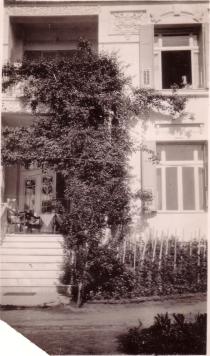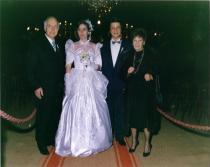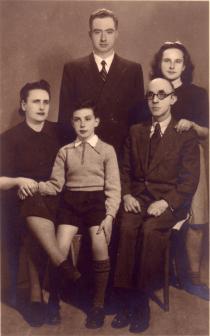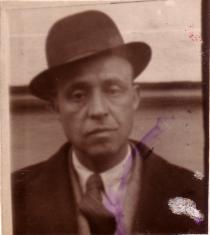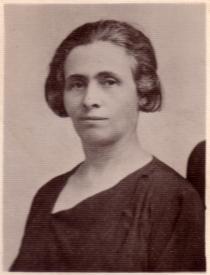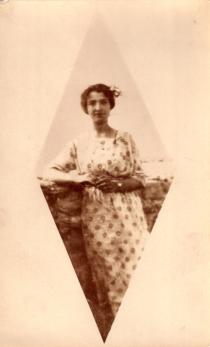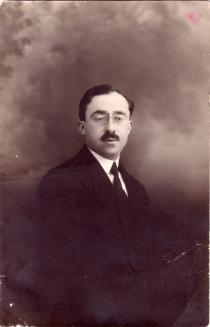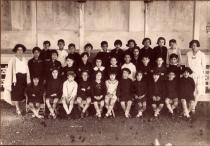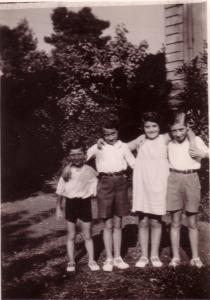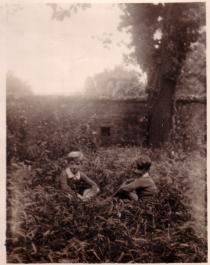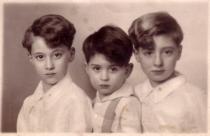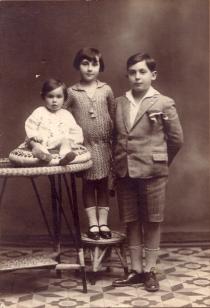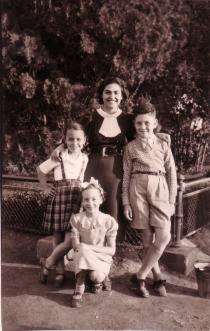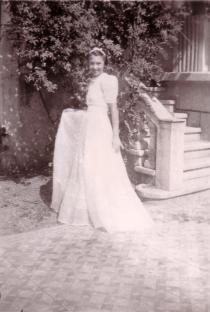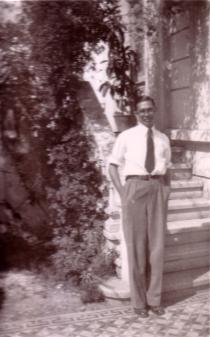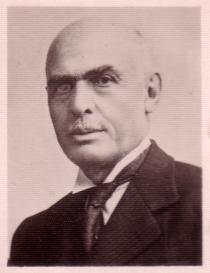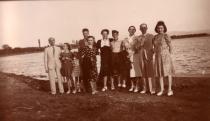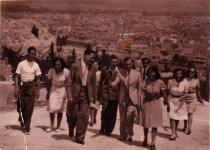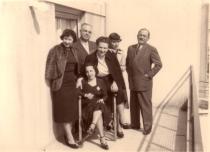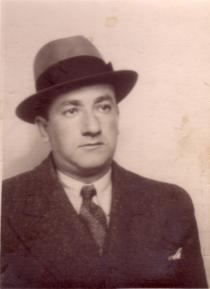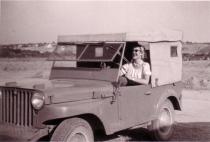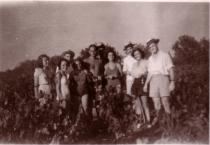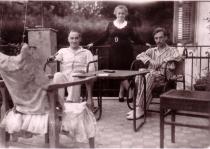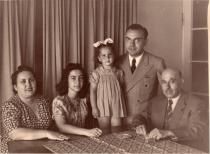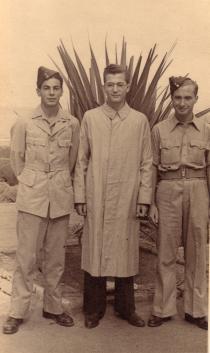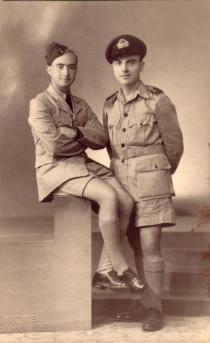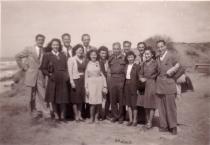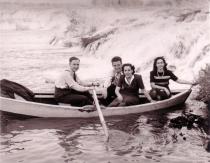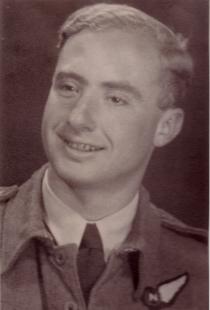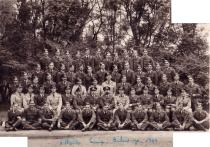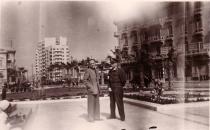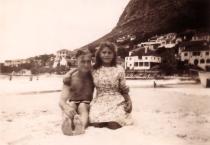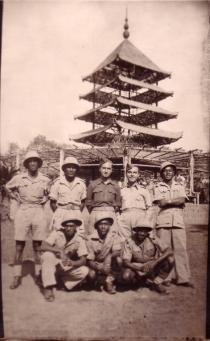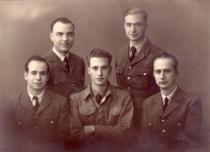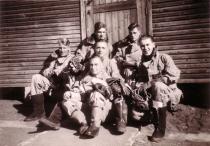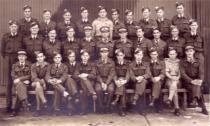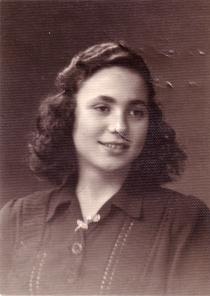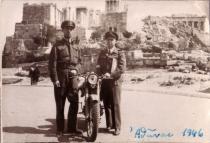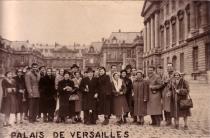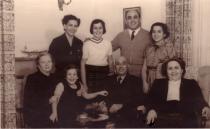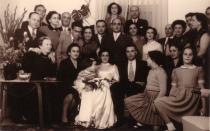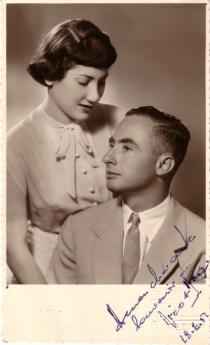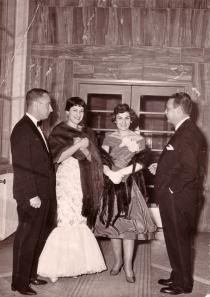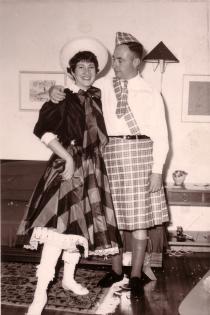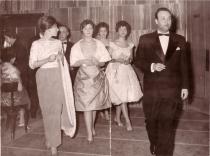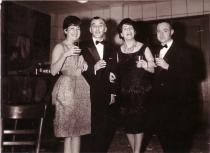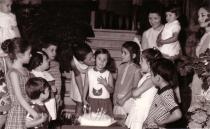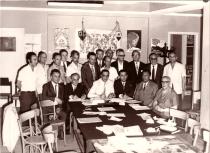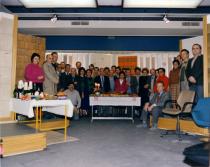This is a picture of myself after I had finished my training as a navigator.
My first training as a flight officer was in Rhodesia, in Bulawayo. The ITU was there, the Initial Training Unit. We started having theory classes there, teaching us a bit of everything.
I knew very little English then, but I learned it there. In my class at the beginning we were only three Greeks.
The rest were English and South Africans. We did all the theory about flight. How does the airplane fly, for what reason, how do the engines work, everything.
We stayed at Bulawayo for three months. I think we did our first flights at this first stage of our training.
Everyone registered himself to become a pilot. And it is there that I was rejected because I failed the landings. So later on, I registered for the position of navigator.
I preferred it, because air navigation is all about trigonometry. For the second part of our training, a special course on aeronautics, we would go to East London, in South Africa.
We went to East London at the beginning of 1944. Every training session (it was three of them) lasted three or four months. In East London we specialized in air navigation. Navigating with the radio, or with the stars.
Later, we were also trained in night flying. That was right in the end when we went to Cape Town.
After East London we went to Cape Town. In Cape Town we mainly had practice on air navigation, which was very interesting. On the plane.
The English had everything so organized, they were great. Of course, we didn't have many real English. Most of them were Welsh and Scotch.
The Scotch were the best. What I liked most was their discipline. For example they would teach the machine gun of an airplane and how to dismantle it and turn it into screws and nuts, and mantle it anew so it can be used again.
Our trainer on armaments was a Flight Sergeant. In the class, we had students that were Flight Lieutenants and even of higher ranks. Because they were people that had fought and now wanted to join the air force and because they were very good, they were sending them too.
You should see when the Flight Sergeant was giving the lesson, how the Flight Lieutenants sat in front of him.
At the end of 1944 we finished. But we weren't fit to fight yet. One had to do the OTU, which was the Operational Training Unit. They trained you on the aeroplane that you were going to fly with.
However, we didn't do the OTU. We didn't do our OTU, because by that time Greece was free and they sent us back.

